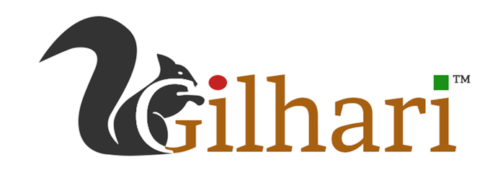
Data integration company Software Tree introduced Gilhari, a microservices framework designed to simplify JSON persistence in relational databases.
According to the company, developers can quickly develop high-performance, database-agnostic, and Docker-compatible RESTful solutions that need to interact with JSON data.
“Developers shouldn’t have to jump through hoops to adapt to modern computing trends,” said Damodar Periwal, the founder and president & CEO of Software Tree. “Gilhari moves in Docker containers. Gilhari talks REST. Gilhari helps developers glide smoothly into the promised land of the microservices-based application architecture while leveraging trusted relational databases for exchanging JSON data.”
The Chaos compiler v0.1.0 released
The Chaos language team announced a new compiler implemented in the compiler.c module. It takes the Abstract Syntax Tree (AST) that is built by the parser as input and spits out the C code.
Chaos programs are compiled against the language’s source. It packs the Chaos runtime into the compiled binary.
The Chaos binary has a flag ‘-e,’ ‘–extra’ to inject extra flags into the C compiler command for advanced users. With this flag developers can increase their debugging possibilities.
More information is available here.
Kotlin Android Extensions update
Over the course of the next year, Android as well as JetBrains teams will jointly deprecate synthetics in favor of continuing to support its recommended option, View Binding.
Developers still using Parcelize can continue to use the same annotations and APIs, however, in the module-level Gradle file, developers can start using the standalone kotlin-parcelize plugin instead of android-kotlin-extensions.
View Binding for Android is an officially supported library that has deep integration with the Android build toolchain and provides similar functionality as Kotlin synthetics.
Linux Foundation offers open source diversity course
The new course called Inclusive Open Source Community Orientation (LFC102) delves into facts about diversity in tech, the importance of diversity for innovation, the basics of unconscious and societal bias, and how to recognize the different ways unconscious bias presents itself in technical environments.
“Open source projects are best when they cultivate contributions from a wide range of individuals with different backgrounds from all over the world, so it is prudent for community members to ensure everyone feels welcome,” said Chris Aniszczyk, the CTO of the Cloud Native Computing Foundation (CNCF). “This course will guide open source projects on how to build inclusive communities, which is why we will be planning to require all CNCF project leadership to complete this training starting next year.”
LFC102 is free and complements the existing LFC101 – Inclusive Speaker Orientation course.
Apache weekly roundup
Last week at Apache saw the release of Apache APISIX Dashboard 2.0 and Dashboard 2.1. Dashboard is a dynamic, real-time, high-performance Cloud-Native API gateway, based on the Nginx library and etcd.
Meanwhile, Apache ShardingSphere UI 5.0.0-alpha was released, which transforms ApacheShardingSphere from sub-database and sub-table middleware to distributed database ecology.
Other releases this week included SkyWalking Python 0.4.0, Tuweni (Incubating) 1.3.0, Daffodil (Incubating) 3.0.0, and more.
The full list of new releases is available here.






